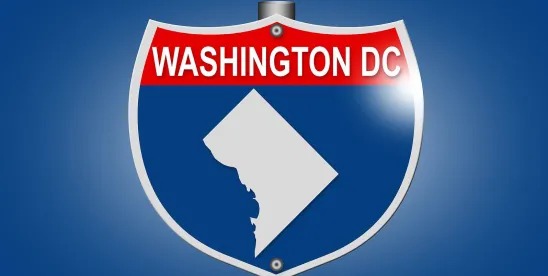The Beltway Buzz is a weekly update summarizing labor and employment news from inside the Beltway and clarifying how what’s happening in Washington, D.C., could impact your business.
SCOTUS to NLRB: No Special Injunction Standard for You. Yesterday, the Supreme Court of the United States issued a decision in a case that challenged the watered-down injunction standard used by the National Labor Relations Board (NLRB) to obtain preliminary injunctive relief under Section 10(j) of the National Labor Relations Act in unfair labor practice cases. While many courts traditionally adhere to the four-factor test when evaluating injunctive relief (i.e., the plaintiff is likely to succeed on the merits, likely to suffer irreparable harm in the absence of preliminary relief, the balance of equities tips in the plaintiff’s favor, and an injunction is in the public interest), in this case, the district court and the Sixth Circuit Court of Appeals rubber-stamped the NLRB’s two-factor test, which is (1) reasonable cause exists to believe that unfair labor practices have occurred and (2) injunctive relief is just and proper. Ruling against the Board and its modified standard, the Court wrote, “Nothing in §10(j)’s text overcomes the presumption that the four traditional criteria govern a preliminary-injunction request by the Board.” In practice, the decision will make it more difficult for the Board to obtain injunctions in federal court. Check out Zachary V. Zagger’s timely article for all the details.
NLRB Inspector General: Mail Ballot Procedures Inconsistent. On June 6, 2024, the NLRB’s Office of Inspector General (OIG) issued a report evaluating the “[NLRB] Regional Offices’ compliance with the Agency’s mail ballot election procedures.” While mail ballot elections have long been permitted, they skyrocketed during the COVID-19 pandemic, and the processes and operations of conducting such elections have since come under scrutiny. Auditing a random sample of mail ballot elections conducted in 2022, the OIG “found that the Regional Offices were not consistently complying with the Agency’s mail ballot election procedures” and that many of the inconsistencies were “caused by the lack of a suitably designed, implemented, and monitored internal control environment.” The report concludes with a recommendation that the Board’s “Division of Operations-Management establish a system of internal controls exclusive to the mail ballot process.” The report’s findings provide support for the argument that in-person voting should be the preferred method for determining whether employees want to be represented by a union.
House Hearing Raises Questions About McFerran’s Renomination. On June 12, 2024, the House Subcommittee on Health, Employment, Labor, and Pensions held a hearing titled, “NLRB Overreach: Trampling on Workers’ Rights and Fostering Unfairness.” By focusing on controversial NLRB decisions (e.g., decisions second-guessing commonsense workplace policies, countenancing potentially harassing conduct under the rubric of protected concerted activity, and green-lighting a form of unionization via card check) and missteps, Republicans at the hearing pushed back on President Joe Biden’s efforts to have NLRB Chair Lauren McFerran reconfirmed for another term. In his opening statement, Subcommittee Chair Bob Good (R-VA) said that under McFerran’s leadership, “the NLRB has become the action arm for Big Labor.” Expect more Republican scrutiny of McFerran’s nomination in the coming weeks.
The Heat Is (Almost) On! This week, the Occupational Safety and Health Administration (OSHA) sent its proposed heat standard for indoor and outdoor settings to the Office of Information and Regulatory Affairs (OIRA) for review. OIRA review represents a formal beginning to the rulemaking process, and once OIRA approves the proposal, OSHA will shortly thereafter make it available for public comment. While the proposal under review is not yet publicly available, OSHA previously released a “framework” document that provides some insight as to what might be included in an eventual proposal. Considering the time involved in OIRA’s review, the public comment period, and OSHA’s review of those comments, any final heat standard wouldn’t appear until a second Biden term. Read Melissa A. Bailey’s recent article for all the details.
Bill Would Ban Arbitration, Class Action Waivers. This week, Senator Patty Murray (D-WA) and Representatives Bobby Scott (D-VA) and Jerrold Nadler (D-NY) reintroduced the Restoring Justice for Workers Act (S. 4502 / H.R. 8691). The bill would prohibit pre-dispute agreements to arbitrate workplace claims, overturn the Supreme Court’s 2018 decision in Epic Systems by banning class action waivers, and establish certain notice and waiting period requirements for post-dispute arbitration agreements. The bill is yet another effort to prohibit or limit the arbitration of workplace disputes. At this time, however, the bill does not appear to enjoy the bipartisan popularity of the Protecting Older Americans Act of 2023 (S. 1979).
Loving Anniversary. This week in 1967, the Supreme Court issued its unanimous decision in Loving v. Virginia, holding that laws banning interracial marriage were unconstitutional. In 1959, Richard Loving, a white man, and his wife, Mildred, a Black woman of Native American descent, were sentenced to prison under Virginia’s Racial Integrity Act of 1924 after they were married in Washington, D.C. The Lovings appealed their case all the way to the Supreme Court. In striking down the Virginia law, and making other similar state laws unenforceable, Chief Justice Earl Warren wrote for the unanimous court, “We have consistently denied the constitutionality of measures which restrict the rights of citizens on account of race. There can be no doubt that restricting the freedom to marry solely because of racial classifications violates the central meaning of the Equal Protection Clause.” A seminal case in civil rights history, the decision in Loving laid the groundwork for the Court’s decisions in United States v. Windsor, 570 U.S. 744 (2013) (striking down the provision of the Defense of Marriage Act that banned federal recognition of same-sex marriages), and Obergefell v. Hodges (2015) (right to marry is a fundamental right that must be guaranteed to same-sex couples).




 />i
/>i

